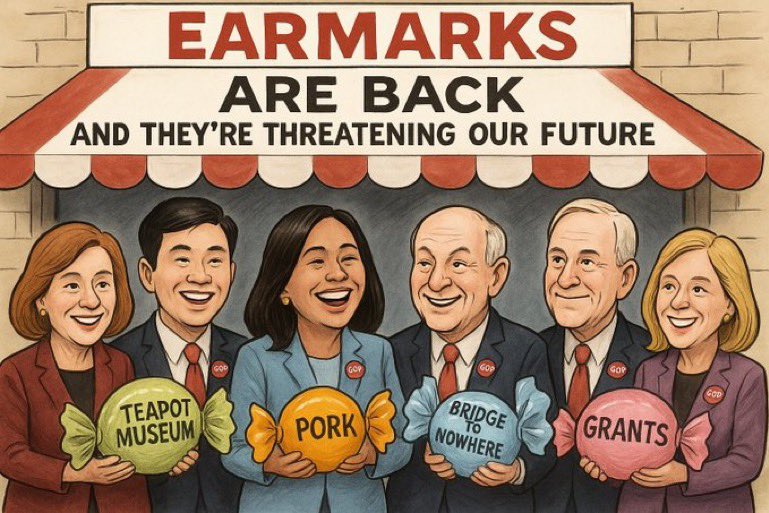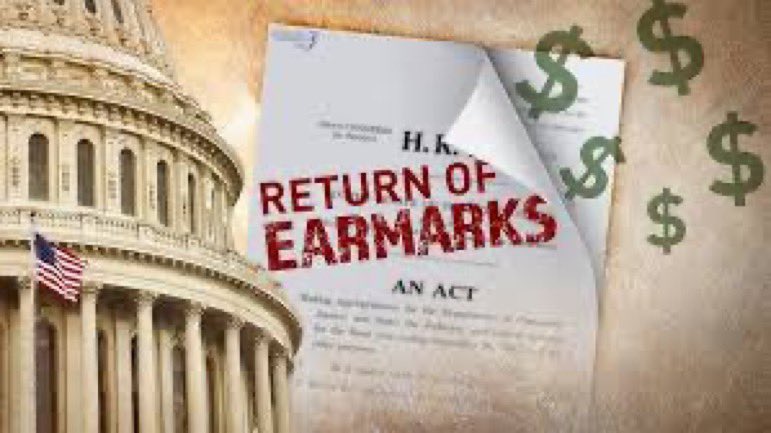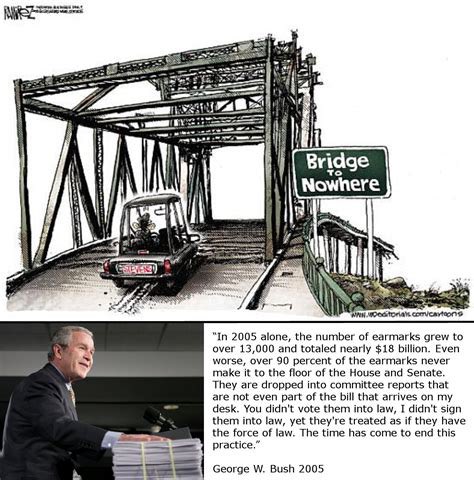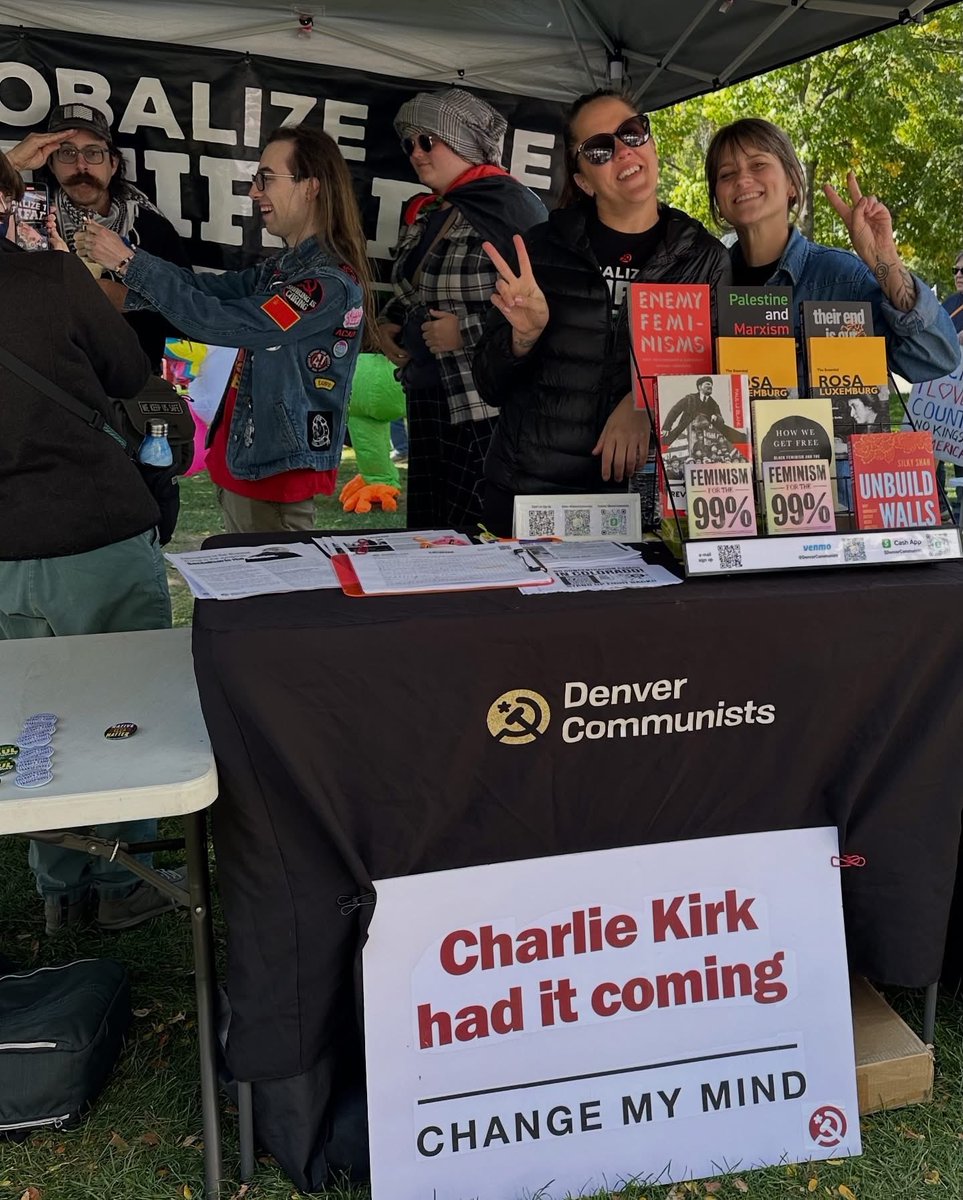For decades, Congress has relied on a lazy technique.
2/
2/
Rather than enacting *real* laws, Congress has delegated much of its lawmaking power to unelected, unaccountable bureaucrats.
3/
3/
In other words, rather than making laws, Congress has in many instances made … other lawmakers.
4/
4/
There are a number of problems with this approach.
5/
5/
The Constitution makes Congress the sole lawmaking organ of the federal government.
6/
6/
Article I, Section 1 — the Constitution’s first operative provision — provides that
“All legislative Powers herein granted shall be vested in a Congress of the United States, which shall consist of a Senate and House of Representatives.”
7/
“All legislative Powers herein granted shall be vested in a Congress of the United States, which shall consist of a Senate and House of Representatives.”
7/
Article I, Section 7 sets the standard for enacting federal laws: both houses of Congress must pass the same text, and that text (having been passed by both chambers) must be presented to the president. If vetoed, the bill passes only if both chambers override the veto with a 2/3 supermajority.
8/
8/
Notwithstanding the plain language of the Constitution—which makes clear that only Congress can make laws—Congress has delegated much of that power to bureaucrats in the executive branch, and in some cases to the president.
9/
9/
Congress passes a law stating a non-controversial objective, which we will refer to here as “X.”
Congress then passes legislation declaring in essence “We shall achieve X, and we hereby delegate to agency Y the power to make and enforce laws to achieve X.”
10/
Congress then passes legislation declaring in essence “We shall achieve X, and we hereby delegate to agency Y the power to make and enforce laws to achieve X.”
10/
Agency Y then makes laws — typically referred to as “rules” or “regulations” — based on what agency Y thinks is the best way of achieving X.
Agency Y thereafter enforces the same rules and regulations it writes.
11/
Agency Y thereafter enforces the same rules and regulations it writes.
11/
Don’t let the shifting nomenclature fool you.
Rules and regulations have the effect of federal law.
In countless circumstances, failure to abide by them can result in heavy fines, having your business shut down, and even imprisonment.
12/
Rules and regulations have the effect of federal law.
In countless circumstances, failure to abide by them can result in heavy fines, having your business shut down, and even imprisonment.
12/
For example, Congress passes a law saying in essence, “We shall have clean air, and we hereby delegate to the EPA the power to make our air clean—by making and enforcing rules and regulations (carrying the full force of federal law) to achieve that objective.
13/
13/
Essentially all decisions beyond that point are left to the discretion of the agency—in this example, the EPA.
How much pollution is acceptable?
How will fines be assessed?
What’s the best strategy for cleaning up the air and reducing pollution?
It’s all up to EPA.
14/
How much pollution is acceptable?
How will fines be assessed?
What’s the best strategy for cleaning up the air and reducing pollution?
It’s all up to EPA.
14/
It sounds great because nobody wants to breathe dirty air.
But what happens when EPA does something absurd?
What happens, for example, when EPA shutters a local economy by establishing standards that are unacceptable or unattainable?
15/
But what happens when EPA does something absurd?
What happens, for example, when EPA shutters a local economy by establishing standards that are unacceptable or unattainable?
15/
In essence, no one is accountable—because the American people can’t fire the bureaucrats who make these laws we call rules and regulations.
16/
16/
Make no mistake, federal rules and regulations are not few in number. Last year alone, federal agencies produced about 100,000 pages of new regulatory text, as published in an annual index (in installments every few days) known as the Federal Register.
17/
17/
Nor are they of little economic significance. Many have tried to estimate how much these regulations cost Americans (through higher prices, diminished wages, etc.), and universally conclude that the pricetag is in the trillions of dollars—per year!
18/
18/
A few years ago we tried to figure out how many federal crimes are on the books. The Congressional Research Service—whose job it is to answer such questions—told us that the answer is unknown and unknowable, but likely at least 300,000. Agency regulations do this.
18/
18/
A few years ago we tried to figure out how many federal crimes are on the books. The Congressional Research Service—whose job it is to answer such questions—told us that the answer is unknown and unknowable, but likely at least 300,000. Agency regulations do this.
19/
19/
“Why,” you might ask, “should it matter who writes these laws if Congress approved it?”
20/
20/
The founders understood that the lawmaking power is the most dangerous power government has. That’s why they entrusted it only to the branch of government most accountable to the people at the most regular intervals.
21/
21/
When you take it away from elected lawmakers and put it in the hands of people who are accountable to almost no one, the lawmaking power becomes dangerous and unwieldy.
Bureaucrats enjoy a degree of effectively unreviewable discretion that would make history’s despots blush.
22/
Bureaucrats enjoy a degree of effectively unreviewable discretion that would make history’s despots blush.
22/
So what happened today at the Supreme Court on this issue?
SCOTUS overturned a case called Chevron v. NRDC, which required federal courts to defer to federal agencies in their own interpretations of laws they administer.
23/
SCOTUS overturned a case called Chevron v. NRDC, which required federal courts to defer to federal agencies in their own interpretations of laws they administer.
23/
Chevron made life easier for Congress, the courts, and federal agencies, but that is precisely the problem—it made it even harder for the people to hold those who make laws accountable.
24/
24/
The demise of Chevron needs to be the beginning, and not the end, of a long-overdue process of reform in this area.
25/
25/
The Supreme Court needs to invigorate the so-called “non-delegation doctrine,” which acknowledges that Congress alone is empowered to make federal laws—and not other lawmakers! This doctrine has long been rendered vestigial through non-use.
26/
26/
Congress for its part needs to enact the REINS Act, which would treat these federal rules and regulations as proposals, taking effect only after being passed into law by Congress.
27/
27/
Anyone running for federal office (Senate, House, White House) should be asked where they stand on outsourcing lawmaking power to unelected, unaccountable bureaucrats.
To that end, they should be asked whether they support the REINS Act, and if not why not.
28/
To that end, they should be asked whether they support the REINS Act, and if not why not.
28/
As I see it, this is the single most important issue federal officials must confront.
It’s “upstream” from almost every problem in the federal government.
For the same reasons, I consider the REINS Act the single most important bill pending before Congress.
29/
It’s “upstream” from almost every problem in the federal government.
For the same reasons, I consider the REINS Act the single most important bill pending before Congress.
29/
We must not see Chevron’s demise as the end of the fight to rein in administrative lawmaking.
Or even the beginning of the end.
We must see to it that it’s only the end of the beginning.
30/
Or even the beginning of the end.
We must see to it that it’s only the end of the beginning.
30/
• • •
Missing some Tweet in this thread? You can try to
force a refresh












